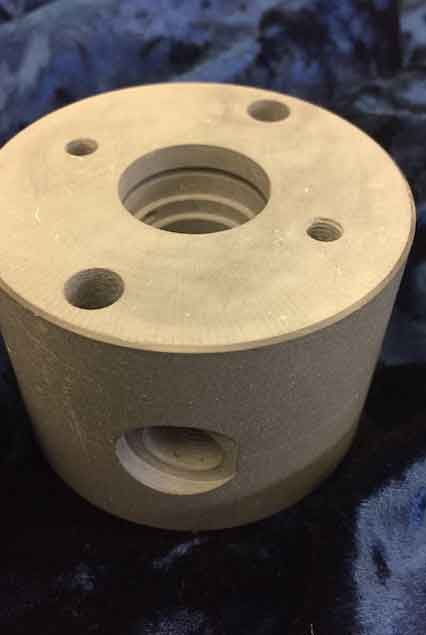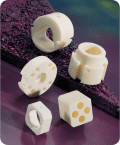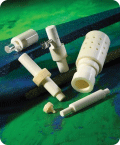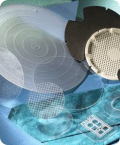Welcome to China Hard Materials Parts. Thank you for visiting!
Since 1947, we have been a precision machining and polishing fabricator of parts from all technical ceramics, sapphire, glass and quartz. We machine these materials to very precise tolerances (many times measured in millionths of an inch) for dimension, flatness, wedge and roundness or cylindricity. Our customers typically have a critical application that requires extremely tight tolerances in ultra-hard materials. We also have the capability to grind and polish spherical radius parts in a variety of hard materials, both inside and outside diameters, to optical requirements.
Please feel free to navigate to other pages within our site to see more information on all of our high precision machining services, materials and capabilities. If you would like more information please click here to send a request, or visit our Frequently Asked Questions page.

AlN was first synthesized in 1877, but it was not until the middle of the 1980s that its potential for application in microelectronics was realized due to its relative high thermal conductivity for an electrical insulating ceramic (70–210 W·m-1·K-1 for polycrystalline material, and as high as 285 W·m-1·K-1 for single crystals).
Aluminum nitride is stable at high temperatures in inert atmospheres and melts at 2800 °C. In a vacuum, AlN decomposes at ~1800 °C. In the air, surface oxidation occurs above 700°C, and even at room temperature, surface oxide layers of 5-10 nm have been detected. This oxide layer protects the material up to 1370°C. Above this temperature bulk oxidation occurs. Aluminum nitride is stable in hydrogen and carbon dioxide atmospheres up to 980°C.
The material dissolves slowly in mineral acids through grain boundary attack, and in strong alkalies through attack on the aluminium nitride grains. The material hydrolyzes slowly in water. Aluminum nitride is resistant to attack from most molten salts, including chlorides and cryolite.
*Click on a Property to see a comparison of up to 10 materials



